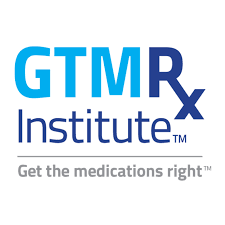
The industry doesn’t have time to debate this critical issue any further—and it is time for the industry, and every stakeholder within it, to take the steps necessary to deliver a safe and more appropriate way to manage medications.
TYSONS CORNER, Va. (PRWEB)
December 08, 2021
Today, The Get the Medications Right™ (GTMRx) Institute, the catalyst for change to medication management that brings together critical stakeholders across health care, is revealing new insights from a survey of more than 200 health care leaders—including health care providers, hospital/health system executives, payors, advocacy groups and academics.The new study shows nearly 80% strongly believe that access to team-based, person-centered comprehensive medication management (CMM) services will ensure a safer, more effective and appropriate way to manage medications and avoid medication misadventures. That said, 45% are not confident at all that our health care system will move toward a person-centered, comprehensive and integrated care within the next 3 years.
Over 44% of health care leaders believe that medical carriers and PBMs know about CMM but don’t see the value in extending beyond adherence programs to a more comprehensive approach. However, with recent data—including a new report from the Centers for Disease Control that showed more than 100,000 Americans died of overdoses in the 12-month period ending in April 2021—and overdose deaths increased by nearly 30% year-over-year.
“The industry doesn’t have time to debate this critical issue any further—and it is time for the industry, and every stakeholder within it, to take the steps necessary to deliver a safe and more appropriate way to manage medications,” said Katherine H. Capps, co-founder and executive director of The GTMRx Institute. “We are committed to shedding light on the importance and urgency of transforming the medication use process. It is truly a matter of life and death—and is costing the nation time, money and most importantly, lives.”
The GTMRx Institute—and its membership of close to 1,500 health care, business and consumer leaders—advocates for the broad adoption of CMM, a more rational process of care in which physicians and clinical pharmacists work together to ensure that each medication is appropriate for the patient, effective for their medical condition, safe given the patient’s health status and other medications and able to be taken by the patient as intended.
Looking ahead to 2022, over 40% of health care leaders surveyed by GTMRx say the lack of communication preventing successful management of a patient’s medication between prescribers and pharmacists will remain the same—while 25% say it will become worse due to mergers and consolidations. Additionally, nearly half of health care leaders surveyed believe a lack of communication between prescribers (i.e. physicians, specialists, other prescribers) and pharmacists will continue to be the biggest issue in managing medications in the year ahead.
In an effort to help the industry continue to evolve, GTMRx is revealing its top tips for addressing CMM in 2022 and beyond:
1. For physicians – medications are involved in 80% of the way we treat and prevent illness; however, physicians have little time to speak with patients about new medications during a typical office visit. A team-based approach, where a medication expert works in collaborative practice with the physician, can significantly impact total cost of care, quality and physician satisfaction while helping patients achieve clinical goals of therapy. In fact, four in 10 health care leaders say the physicians and pharmacists at the care team level have the most impact on making a lasting change for removing professional silos that prevent person-centered integrated care.
2. For payors – prescription drug spending exceeds $300 billion a year, but while price and access have been at the forefront of discussions, GTMRx finds that when the medication being prescribed is safe and appropriate, it can help repair this broken system and mitigate the misuse and mismanagement of medications in the future impacting total cost of care.
3. For employers – employers must move beyond “the pill” with formulary design to focus on “the process” considering how medications are being selected, managed and monitored for the individual patient. A recent GTMRx survey of HR business decision makers shows nine out of 10 employers feel they would benefit from a more innovative way to manage medication therapy problems.
4. For providers – at the practice level we must surround patients with a coordinated, interprofessional team with access to clinical information at the point-of-care, recognizing appropriately skilled clinical pharmacists as a member of that team working in collaborative practice with physicians and other providers. High quality primary care is the foundation of the health system and advanced primary care models must be equipped with enabling technology, advanced diagnostics and a process of care (CMM) to allow providers to target correct therapies and prevent medication misadventures.
5. For lawmakers – it is vital for policymakers to move beyond fee-for-service reimbursement to payment models that will reward the interprofessional team. Expanding investments in primary care is essential to reduce total cost of care allowing for management of patients with chronic conditions (taking multiple medications), coordinating care among multiple providers and getting the medications right.
GTMRx regularly releases data on CMM and insights from industry leaders—for more information, visit https://gtmr.org/learning-center/.
About the Get the Medications Right™ Institute
The GTMRx Institute is a catalyst for change that brings critical stakeholders together, bound by the urgent need to get the medications right. We are physicians, pharmacists, nurses, patients, health IT innovators, drug and diagnostics companies, consumer groups, employers, payers—aligned to save lives and save money through comprehensive medication management. By showcasing evidence and innovation, we motivate practice transformation and push payment and policy reform. Together, we ACT to champion appropriate, effective, safe and precise use of medication and gene therapies. Learn more at gtmr.org.
Share article on social media or email:

